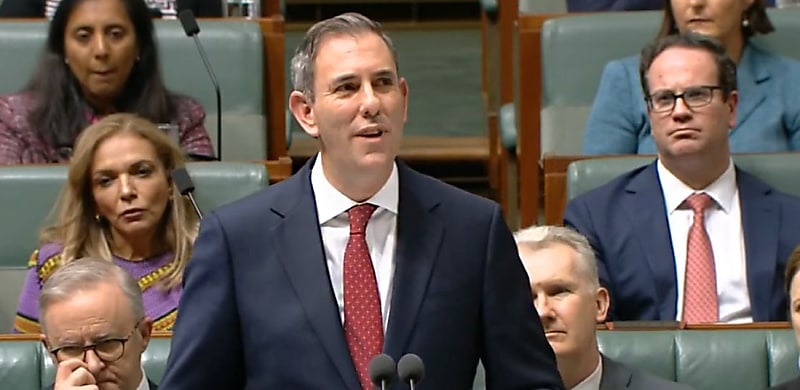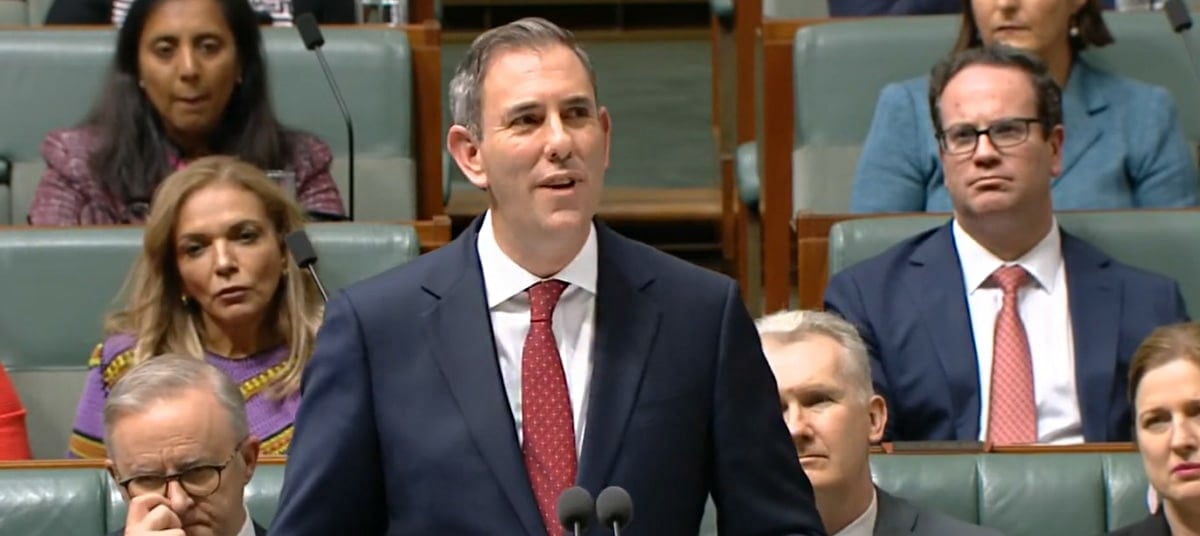
Treasurer Jim Chalmers has agreed to eight of nine recommendations outlined in a review into small and medium‑sized banking competition, but stopped short of accepting a “lighter touch framework” for very small banks.
The Albanese government has accepted eight recommendations from the Council of Financial Regulators’ (CFR) review into small and medium‑sized bank competition, but will seek feedback on a recommendation to introduce a “lighter touch framework” for very small banks.
The CFR’s review, made in consultation with the Australian Competition and Consumer Commission (ACCC), was commissioned by Treasurer Chalmers last year and was aimed at supporting smaller banks to increase competition.
Released on Wednesday (6 August), the review made nine recommendations for the government and set out nine actions for regulators. It also found small and medium-sized banks faced competitive challenges due to the high fixed costs of running a bank and their smaller scale.
Chalmers agreed in principle to eight recommendations, including removing the requirement for small banks to automatically report certain breaches to ASIC, and addressing gaps related to unclaimed money and deposits tied to banking exits.
Other recommendations agreed to include considering an increase in the cap on covered bonds from 8 to 12 per cent of Australian assets and replacing the requirement for banks to lodge an annual compliance certificate with ASIC with a simplified ‘responsible manager’ form.
However, the Treasurer refused to accept the ninth recommendation and said: “We will seek feedback on the final recommendation for APRA to introduce a lighter touch framework for very small banks, accompanied by adjustments to the Financial Claims Scheme.”
In its report, the CFR urged the government to consider APRA taking a “lighter-touch approach to the regulation of very small banks, to support their improved dynamism and competitiveness”.
The council added: “A lighter touch prudential regime for very small banks would only be appropriate if corresponding adjustments were implemented by government to protect depositors and financial stability – this includes delegation of FCS triggers to APRA for this cohort.”
The government said it would work with the CFR agencies and the ACCC on actions and recommendations, including through further targeted consultation.
Following the review, the Australian Prudential Regulation Authority (APRA) will make changes to its banking framework to reduce regulatory burden on small and medium-sized banks.
Changes include formalising a three-tiered model for banking regulation, categorising banks into large (major banks), medium (other significant financial institutions), and small (non-significant financial institutions).
It also plans to better communicate APRA’s decisions on minimum capital requirements and amend its bank licensing framework to make expectations more transparent.
APRA chair John Lonsdale said the review had been a valuable exercise in focusing regulators’ attention on whether they were striking the right balance between consumer protection and considerations, such as competition and efficiency.
“Small and medium-sized banks are an important part of the industry landscape, delivering essential banking services and providing choice for millions of customers, especially in rural and remote areas,” he said.
“The changes we have committed to as part of this review strike a sensible balance between lowering the regulatory burden for banks while ensuring banks of all sizes have the financial and operational resilience to protect their depositors.”
The release of the review follows a broad consultation process, which involved 27 submissions, including four confidential submissions, as well as discussions with stakeholders from the banking industry, industry associations, other market participants, and individuals.
'Step towards a level playing field'
Industry bodies including the Customer Owned Banking Association (COBA) welcomed the report, with the association describing the CFR's recommendations as a ”productive first step towards a level playing field”.
“We welcome the government’s statement of intent on improving the regulatory framework, and the greater consideration of how future policy changes will impact customer-owned banks,” COBA CEO Michael Lawrence said.
“We also support the shift to broadening the regulatory lens – not just to manage risk, but to actively promote competition and support innovation, which ultimately benefits all Australians. However, this is just the start of a broader reform journey and there is still important work ahead,” he added.
COBA has long argued that the regulatory framework disproportionately burdens customer-owned banks, creating an unfair competitive environment.
“Regulation plays an important role in creating a competitive banking landscape, and by striking the right balance, effective regulation establishes guardrails to address risks while promoting growth and innovation,” Lawrence said.
The Australian Banking Association (ABA) also welcomed the report, with CEO Anna Bligh saying: “This is an important step forward in ensuring Australia maintains a strong and competitive banking sector.“
She added: “Having a diverse range of banks ultimately means more competition in the market and that delivers more choice and better outcomes for customers.
“There are positive steps in this review to ensure the regulatory settings allow small and medium-sized banks to compete and succeed. In particular, we welcome moves to formalise more proportionate regulation, support lower funding costs and reduce unnecessary regulatory reporting,“ Bligh finished.
[Related: APRA to move to new regulatory framework for banks]

